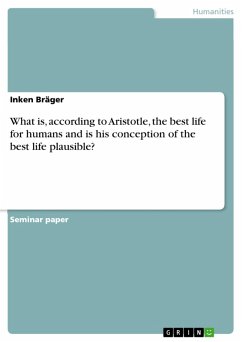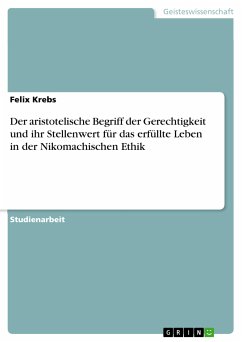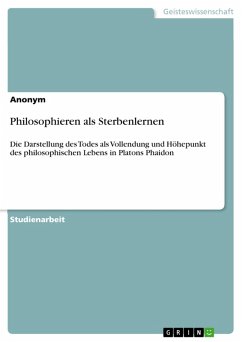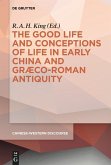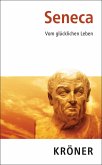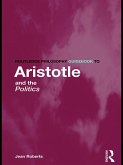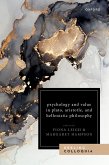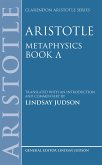Seminar paper from the year 2020 in the subject Philosophy - Philosophy of the Ancient World, grade: 1,3, University of Bristol (Philosophy), course: Readings in Value Theory, language: English, abstract: Aristotle expresses it directly with the first sentence of his first book of his Nicomachean Ethics: All we're aiming for is the good life as the highest good. For him, the good life is the reason we live. For this, the pursuit of happiness, called Eudaimonia, is central to his theory. Throughout history, many people have grappled with the question of what makes a good and fortunate life, and even today this topic is very present and controversial. In the following, I'm dealing with Aristotle concerning the best life, to prove that his principle of Eudaimonia is a convincing theory. It's to be examined, that his conception of a good life is the objectively desirable one. After the central assumption I'll outline the main features of Virtue Ethics before questioning the plausibility of the Aristotelian theory. I will do that by relating to two objections: how it should be judged that material goods are a precondition to Aristotle's best life and how pleasurable the life of a virtuous is. Even though there are more objections, like different interpretations of Eudaimonia or different interpretations of the right measure according to virtue for example, I'd like to retain with the previous two, as they are the most interesting regarding the 21st century. At last I will give a summary to conclude the elaboration.
Dieser Download kann aus rechtlichen Gründen nur mit Rechnungsadresse in A, B, BG, CY, CZ, D, DK, EW, E, FIN, F, GR, HR, H, IRL, I, LT, L, LR, M, NL, PL, P, R, S, SLO, SK ausgeliefert werden.

